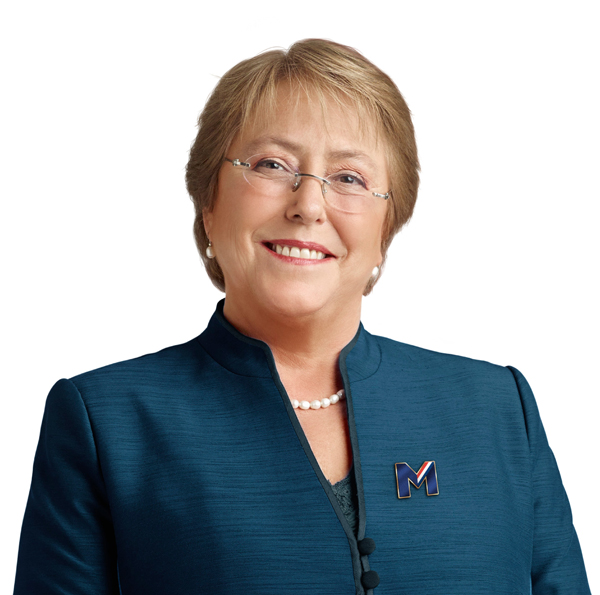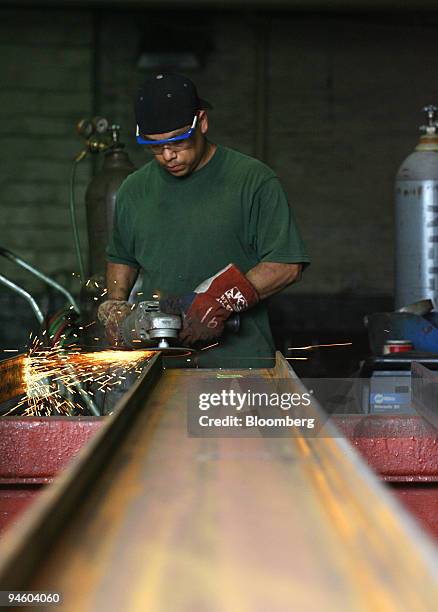President Michelle Bachelet

Michelle Bachelet Jeria, a distinguished politician and leader, served as the first female President of Chile from 2006 to 2010 and again from 2014 to 2018, making her the country's first re-elected female president. Her leadership and dedication to social justice and equality have left an indelible mark on Chile's political landscape and inspired women globally.
A Life Dedicated to Public Service

Born on September 29, 1951, in Santiago, Chile, Michelle Bachelet’s journey into politics was shaped by her family’s involvement in progressive politics and her own unwavering commitment to social causes. She studied medicine at the University of Chile, but her path soon veered towards public service.
Bachelet’s political career began in the 1970s, during the presidency of Salvador Allende. She joined the Socialist Youth movement and was an active participant in the political life of Chile until the 1973 coup d’état led by Augusto Pinochet. During the military dictatorship, Bachelet and her family faced persecution and exile, which only strengthened her resolve to fight for democracy and human rights.
The Rise to Presidency

Upon Chile’s return to democracy in the late 1980s, Bachelet’s political career flourished. She served in various ministerial positions, including Minister of Health and Minister of Defense, under President Ricardo Lagos. Her tenure as Minister of Defense was particularly notable, as she became the first woman in Latin America to hold such a position.
In 2006, Bachelet’s political career reached its pinnacle when she was elected President of Chile, defeating Sebastián Piñera in a runoff election. Her victory was a historic moment for Chile, as she became the first female president in the country’s history. Bachelet’s first term in office was marked by significant social reforms, including the implementation of a universal healthcare system and the introduction of gender equality initiatives.
Key Accomplishments of Michelle Bachelet’s Presidency
During her two terms as President, Michelle Bachelet introduced a range of progressive policies that had a profound impact on Chilean society. Here are some of her key achievements:
- Education Reform: Bachelet’s government introduced significant changes to the education system, making higher education more accessible and affordable for all Chileans. This included the elimination of profit in the public education system and the implementation of free higher education for students from low-income families.
- Healthcare Revolution: She oversaw the implementation of the AUGE Plan (Universal Access with Explicit Guarantees), which ensured that all Chileans had access to quality healthcare services, regardless of their ability to pay. This plan addressed long-standing inequalities in healthcare access.
- Constitutional Reform: Bachelet played a pivotal role in the process of drafting a new constitution for Chile, replacing the one imposed during the Pinochet dictatorship. This reform aimed to establish a more democratic and inclusive political system.
- Environmental Policies: Her administration took important steps to combat climate change and protect the environment. This included the creation of new national parks and the promotion of renewable energy sources.
- Gender Equality: Bachelet was a strong advocate for women’s rights and gender equality. She implemented policies to promote women’s participation in politics and the workplace, and her government introduced legislation to combat gender-based violence.
International Leadership and Legacy
Michelle Bachelet’s impact extended beyond Chile’s borders. After her first presidential term, she served as the Executive Director of UN Women, the United Nations entity dedicated to gender equality and the empowerment of women. Her leadership at UN Women helped advance the global agenda for women’s rights and gender equality.
In 2018, Bachelet was appointed as the United Nations High Commissioner for Human Rights, a position she held until 2022. In this role, she advocated for human rights worldwide, speaking out against violations and promoting justice and equality.
Impact and Recognition
Michelle Bachelet’s leadership and dedication to social justice have earned her widespread recognition and respect. She has been praised for her integrity, courage, and commitment to making a positive difference in the lives of Chileans and people worldwide.
Bachelet’s legacy in Chile is particularly significant. Her policies and reforms have helped to improve the lives of millions of Chileans, especially those from marginalized communities. Her leadership has inspired a new generation of Chilean women to pursue political careers and fight for social justice.
| Metric | Data |
|---|---|
| Years as President | 2006-2010, 2014-2018 |
| Key Policies Implemented | Education Reform, Healthcare Reform, Gender Equality Initiatives |
| International Positions Held | Executive Director of UN Women, UN High Commissioner for Human Rights |

What was Michelle Bachelet’s impact on education in Chile?
+Bachelet’s government introduced major education reforms, making higher education more accessible and affordable. This included eliminating profit in the public education system and providing free higher education for low-income students.
How did Bachelet contribute to healthcare in Chile?
+She implemented the AUGE Plan, ensuring all Chileans had access to quality healthcare. This plan addressed healthcare inequalities and improved access to essential services.
What was Bachelet’s role at UN Women and the UN High Commissioner for Human Rights?
+At UN Women, Bachelet advanced the global agenda for women’s rights. As UN High Commissioner for Human Rights, she advocated for human rights worldwide, addressing violations and promoting justice.


